- Home
- Paul Christopher
The Second Assassin Page 2
The Second Assassin Read online
Page 2
A small workman’s village had grown up around the entrance during the seven years since the tunnel had gone into operation, but like the rest of the port its sheds, cafe and ship chandlers were closed and empty on this day. Barely slowing, Bone roared along the top of the stone breakwater at the water’s edge, skidded deftly around a pile of nets and rope, then reached forward and switched on his headlamp as he entered the tunnel. Leaving a thundering echo in his wake, Bone rocketed down the towpath, balanced precipitously over the dark, flat water of the canal barely six feet below him. Bone knew from an earlier reconnaissance that the towpath was regularly used by pedestrians and bicyclists even though such use wasn’t strictly legal and he also knew that the entire length and both entrances were unguarded.
After thirteen noisy but uneventful minutes in the tunnel, John Bone exited at the artificially enclosed Etang de Bolmon, which was actually no more than a small bay in the much larger saltwater tidal ponds of the Etang de Vaine and the Etang de Berre. By using the shortcut through the tunnel he had bypassed almost thirty kilometres of travel and had completely avoided any roadblocks.
Bone angled the motorcycle up the steep dike of the channel exit, found a rutted farm track and finally reached a single-lane back road that took him into and through the sleepy little town of Marignane. It was a surprising landscape beyond the town after the bleak, broken hills of Marseille only a few miles behind him. The farmers’ fields were almost perfectly flat, sloping gently down towards the sea, the black, rutted soil turned under for the coming winter. A mile beyond the town he turned west, following the road past the small railway station to the Marseille–Marignane Aerodrome.
The airport was made up of two runways laid out in a lopsided V, a row of hangar sheds and a rectangular white terminal building topped with a five-storey observation tower. The grass strips between the concrete runways and the hardstands were little more than stubble, stunted and burned by the past summer’s sun. A service road connected the terminal building to the ramps of the Base de Hydroavions at the water’s edge.
The seaplane base was a key stop for the huge flying boats of Imperial Airways on the Far Eastern routes, as well as the somewhat smaller aircraft of Air France and Lufthansa. As usual, the airport – the second largest in France – was busy. There was an Imperial Airways C-class flying boat moored to the passenger loading dock beside one of the ramps, a Netherlands Airline Dornier moored nearby and more than a dozen assorted aircraft pulled up around the main terminal.
Bone eased back on the throttle as he approached the terminal, then turned aside and parked behind one of the hangars. Switching off the machine, he dismounted and stretched, smelling the salt water of the etang and listening to the rattle and roar of an aeroplane taking off. He looked at his watch. It was 4:45, thirty minutes since the shooting. Even at high speed there would be only just enough time for the police to reach Marignane and no reason for them to do so unless something had gone terribly wrong.
Standing beside the motorcycle Bone pulled a packet of Gauloises from the pocket of his jacket and lit one, glancing towards the main entrance to the terminal. As usual there were two gendarmes on guard outside the doors. The two men were smoking, their heads bent in serious conversation, but there was no sign of any untoward activity around them. Bone took a few more puffs on his cigarette, then tossed it away and walked casually around the hangar to the side entrance of the terminal. The doorway led to the baggage area and the consigne counter. Bone gave the uniformed attendant his ticket, reclaimed a medium-size suitcase and took it to the WC a few metres down the corridor.
He emerged less than five minutes later, transformed. The leather jacket was gone, replaced now by a slightly rumpled but obviously expensive cream-coloured linen suit, a white shirt and a blue-and-red-striped silk tie. His hair was combed back off his face and he now wore a pair of gold-rimmed, plain glass spectacles, the lenses lightly tinted in a smoky brown as though he suffered from a sensitivity to light. He looked like a well-dressed businessman, which was exactly what the freshly minted Brazilian passport he carried said he was.
Carrying the suitcase, Bone went out onto the main concourse and paused for a moment before crossing to the Lufthansa desk on the far side of the room. A cluster of airport workers including a trio of blue-jacketed douaniers was gathered around the swinging doors leading out onto the tarmac. Once again there seemed to be no official alert in place.
Bone went to the Lufthansa desk, handed over his passport, ticket and the suitcase, then waited as the clerk took his bag, stamped his ticket and checked his name off on the manifest.
The clerk smiled. ‘Your flight leaves in ten minutes, Monsieur Ramirez. You may board anytime you wish.’
‘Merci,’ Bone answered. He walked across to the customs-and-immigration kiosk, showed his ticket and his passport then went out through the double doors. Fifty feet to his right a two-engined Fokker DC-2 waited, the red, white and black Nazi insignia gleaming boldly on the aircraft’s tail, its propellers already whirling as the engines warmed up.
Bone walked across the cracked concrete of the hardstand, smiled at the male steward standing by the short stairway at the rear of the aircraft and climbed aboard. The Fokker, an American-manufactured Dutch-assembled Douglas DC-2 had a standard single-aisle seating arrangement, single seats along both the right and left sides.
There were already a dozen or so passengers on board but Bone found a seat over the wing and dropped into it gratefully. He watched out the window but saw nothing out of the ordinary happening at the terminal. A few minutes later the plane swung around, taxied to the far end of one of the runways and took off, turning north-east above the rolling hills of Provence and leaving the Mediterranean behind. John Bone let his head fall back against the seat, closed his eyes and slept. An hour and fifty-five minutes later the Lufthansa flight arrived at Geneve–Cointrin Airport.
* * *
Alexander Karageorgevic died of his wounds almost immediately after being shot, while the seventy-two-year-old French foreign minister, Louis Berthou, officially expired while being taken to the Hospital St Pierre. Velitchko, the assassin who jumped on the running board of the Mercedes, died instantly, although the official report lodged with the Sureté Nationale in Paris stated that he had died several hours after the attack, the cause of death being the sword cuts delivered by Colonel Poillet, the man on horseback beside the car. No mention was made of the bullet wound in Velitchko’s chest and no explanation was given for the disparity of calibres between the bullets found in the king’s body and the ones that killed Louis Berthou.
The only survivors of the murderous attack were General Alphonse Georges, struck by four bullets from Velitchko’s weapon, and the driver, who escaped unscathed. Between the king, Berthou and General Georges, ten bullets were recovered, nine from the bodies of the gentlemen concerned and the tenth from the upholstery of the Mercedes where Berthou had been seated. Although the C12 Mauser used by Velitchko did in fact hold ten bullets, only seven had been fired when the weapon was recovered. No explanation was ever given for the three extra bullets.
Immediately following the death of the king and Berthou, a full-scale search was done for other members of the assassination plot. Within forty-eight hours three men had been arrested trying to cross the Swiss–French border at Col de l’Iseran. The men, all Croatians like Velitchko, had been seen in his company in both Avignon and Marseille. Upon interrogation all three men insisted that the mastermind of the plot had been a dark-haired man known only to Velitchko. They claimed he called himself Petar. After a brief trial the three Croatians were found guilty and sentenced to life imprisonment. No trace of the man known as Petar was ever found.
Chapter One
Monday, March 13, 1939
New York City
Jane Todd stared at her cards and tried not to yawn. Pelay, the little Brazilian bellhop, had managed to get them a room overlooking the park this time. Dawn sunlight was already leaking in around the dra
wn curtains. All four people at the table were smokers and the cigarette haze was thick as fog. The green felt tossed over the table to protect it was covered in ashes, beer bottles, poker chips and cards. The radiator under the window was hissing and the big bed on the other side of the room was starting to look very tempting. Jane and the others had been at it since midnight and even the sandwich trays Pelay had cadged from his pal down in the Oak Room couldn’t soak up the sour taste of too much beer and coffee and far too many cigarettes.
Since it was Jane’s deal they were playing Slop, a ladies’ game – a two-draw version of poker she’d learned on a Moore-McCormack cruise to Hawaii. Jane let out a small unladylike belch and looked down at the cards again. She’d dealt herself a pair of fives and not much else. Everybody had anted up for the hand and four bucks’ worth of chips lay in the pot. Pelay, sitting on Jane’s left, drew three cards then wriggled back in his seat with an irritated expression on his face. Rusty Birdwell, her scrawny pal from the Daily News, was seated directly across from Jane. Like the bellhop, he drew three cards then used a wetted index finger to smooth down his Clark Gable.
‘Well shit,’ he muttered and took a slug from the bottle of Pabst in front of him. Dick Walsh, the handsome, dark-haired headwaiter from the Stork Club, tapped the table and held up three fingers as well. Jane dealt them out then took three for herself. Still nothing but the pair of fives.
Pelay shook his head. ‘You a rotten goddamn dealer. You know that, Jane?’
‘Yeah,’ said Walsh. ‘But at least she’s democratic. She doesn’t deal anyone a good hand.’
‘Bet,’ said Jane. She shook a Lucky out of the pack in front of Pelay and lit it with his slim, solid-gold lighter.
‘Where does an evil little dwarf like you get the money for a Dunhill?’
‘A gift,’ said the bellhop. He tossed a dollar chip into the pot.
‘From a guest?’ asked Birdwell, who threw in a dollar as well.
‘A grateful guest, my friend.’ Pelay arched an eyebrow. Walsh folded, tossing in his cards, then stood up and wandered off towards the john.
‘Grateful for what?’ asked Birdwell, playing into it.
The bellhop leered, then reached down with his free hand and squeezed the crotch of his uniform trousers. ‘I gave her what no woman can give herself.’
‘What would that be?’ Jane asked. ‘One of those little cocktail wieners they serve down in the bar?’ She added her dollar to the pot. ‘Anybody worth shooting in the hotel?’ she asked.
Pelay shrugged. ‘Miss Bankhead is here. The Duke and Dukette of Windsor arrive tomorrow but they do not allow pictures. You know that, Jane.’
‘I think that’s duchess, my little South American friend,’ said a grinning Birdwell.
‘I don’t care for a shits what you want to call her,’ Pelay snorted. ‘All I know is she has too much luggage and never tips.’
‘Nobody else?’ Jane asked. Because she was a freelance news photographer, information from people like Pelay at the Plaza and Walsh from the Stork Club was worth its weight in gold. Which was half the reason for the regular once-a-week poker game, of course.
Pelay sighed. ‘Mr Dewey is having a party here on Friday. Mr Astaire arrives on Thursday. Mr Powell is here on Saturday and Sunday before heading to Cape Cod.’ He gave a little laugh. ‘Then there are the regulars, of course: wives playing fec-a-fec on their husbands, husbands playing fec-a-fec on their wives, assorted kings and queens without countries.’
‘Think the King and Queen of England will stay at the Plaza when they come to the States?’ Birdwell asked.
‘If they stay in New York they would stay nowhere else,’ said the little man, lifting his head proudly. ‘I would see to it personally, me, Juan Auguste Pelay!’ He poked a thumb into his chest.
‘Not if the duke and duchess are here,’ said Jane. Everybody knew England’s new queen and the duchess hated each other. Now that would be something worth seeing, Jane thought – a down-and-dirty catfight complete with hissing and scratching and hair pulling, tiaras and crown jewels flying in all directions. What a picture that would be. You could make enough with a shot like that to retire. ‘Anybody want cards?’
They went around the table again and Jane gave herself a pair of eights to go along with the fives. She bet two dollars. Pelay and Rusty called and they put down their cards. Birdwell took it with queens and treys.
‘Royalty has always looked kindly upon me,’ Birdwell said, screwing up one eye as though he was wearing a monocle. Then he leaned forward and raked in the pot. He lit a Spud and leaned back in his chair. ‘They’ll go over big, those two,’ Birdwell predicted. ‘Just you wait.’
‘From what I hear, he’s kind of dull,’ said Jane. ‘Not like his big brother.’
‘Not what the Brits need right now,’ Birdwell said, shaking his head. ‘He went shooting tigers in India, flying around in aeroplanes, kicking up his heels with Mrs Simpson. Old George and Elizabeth are just what the doctor ordered – Fairbanks and Pickford all over again, mark my words. He’s shy, she’s charming and both of them are salt-of-the-earth types. Just what you want in a war.’
Walsh came back from the john with splashes of water on his wrinkled white shirt and Jane handed him the cards, begging out of the game for a hand or two. She stubbed out her cigarette, then stood up and went to the window. She pulled back the drapes and hauled up the lower pane six inches, letting in a waft of fresh, cold air. She eased herself down onto the radiator, tucking her dark skirt under her thighs, leaned back against the window frame and looked out over the park. Nothing was moving except a cop on horseback going around the pond to Inscope Arch. Jane took a deep breath and closed her eyes for a moment.
Jane Mary Todd was almost thirty-nine years old, born with the century in Brooklyn, New York, on March 31, the same day McKinley officially put America onto the gold standard, making her her mother’s personal Golden Girl, as she was called when she was a little girl, much to her shame and horror.
Jane’s mother had been a seamstress and her father had worked for the New York Central Railroad. Her father had died in a trench in France in late 1917 and her mother died a year later during the influenza epidemic, leaving eighteen-year-old Jane to take care of Annie, her blind, dull-witted older sister. Helped by friends of her father, Jane managed to find work as a telegraphist’s assistant with the railroad, but the money she made wasn’t nearly enough to support both herself and Annie. In the end she was forced to have her sister committed to the Metropolitan Hospital Lunatic Asylum on Welfare Island.
Jane lasted two years on the railroad, then found a job as a copy girl on the New York Herald Tribune, where she eventually earned enough money to buy a ten-year-old Speed Graphic and set herself up as a freelance reporter and photographer. That was in 1923 and she’d been doing the same thing ever since, bouncing around from one city to the other all over the United States, including a couple of years as a publicity photographer in Hollywood, which was where she’d first met Rusty Birdwell.
For the last three years she’d been back in New York, living and working out of a two-room office in a run-down block on Twenty-third Street that was occupied by jobbers, bail bondsmen, second-rate lawyers and even a couple of private detectives. She’d come close to marriage a few times but had never taken the final plunge. Thankfully she’d never sunk as low as sleeping with any of her poker partners, no matter how desperate she’d found herself. Even though she was pushing forty, most men agreed she was a looker, like a slightly out-of-focus Glenda Farrell in the Torchy Blane films, blonde bob and perm, big eyes and a mouth that made you think about all sorts of things, but so far no one was willing to live with her longshoreman’s vocabulary, the constant smell of photographic chemicals and a parrot named Ponce de Leon, who only said rude things in Italian. Jane had been given the orphan bird by Dan Hennessy, a cop friend, after covering the murder of its previous owner for the Daily News. The dead man, a low-level gunsel for the Gambino family, had b
een named Vinnie the Mook.
‘You gonna play or you gonna jump out the window?’ asked Birdwell. Jane opened her eyes and yawned, putting her hand in front of her mouth. She glanced out the window. The horse cop was gone and the park was empty. Somewhere far away she heard the howling of a police siren.
‘Play,’ Jane said finally. She closed the window and went back to her seat. Birdwell was dealing now. Jane anted up and then checked her cards. Junk. She thought about folding before she wasted any more money but decided to stay in for the draw.
‘So why you think they coming to America?’ Pelay asked.
‘Who?’ asked Jane, lighting another cigarette.
‘This king and this queen,’ said Pelay.
Birdwell drew a pair. ‘Depends on if you’re a Democrat or a Republican,’ he said, arranging his cards in a fan.
‘I do not understand,’ said Pelay.
‘If you’re a Democrat you think it’s a nice gesture, hands across the sea and all that, the result of a friendly invitation with no political significance at all,’ Birdwell replied.
‘And if you’re a Republican,’ Jane explained with a smile, ‘you think it’s a secret plot by FDR to get America into the war.’
‘This is twice you have spoken it. What war?’ Pelay asked nervously. ‘I have not heard of this.’
‘The war with Hitler,’ said Birdwell. ‘Which you can bet your socks is coming, slick as shit.’
‘I don’t want your socks. I want your money,’ said Walsh. ‘Three cards.’ He took them and then it was Jane’s turn. She drew three as well and came up with a pair of jacks. She bet two dollars.

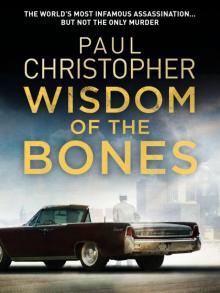 Wisdom of the Bones
Wisdom of the Bones The House of Special Purpose
The House of Special Purpose The Second Assassin
The Second Assassin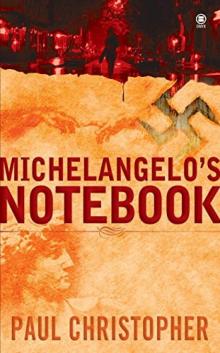 Michelangelo's Notebook
Michelangelo's Notebook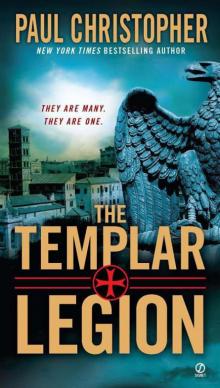 Templar Legion
Templar Legion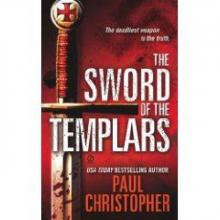 The Sword of the Templars t-1
The Sword of the Templars t-1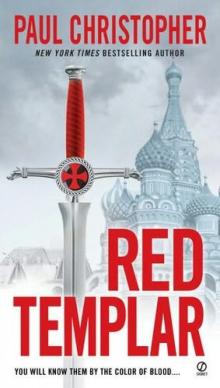 Red Templar
Red Templar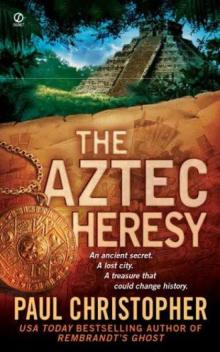 The Aztec Heresy
The Aztec Heresy The Templar Legion
The Templar Legion Rembrandt's Ghost
Rembrandt's Ghost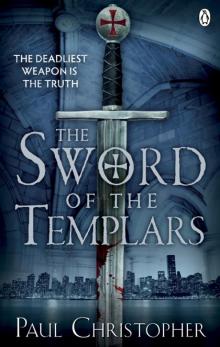 Sword of the Templars
Sword of the Templars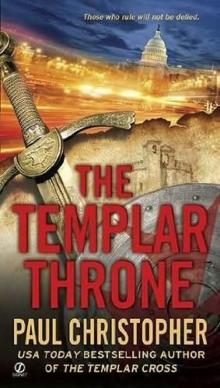 The Templar throne t-3
The Templar throne t-3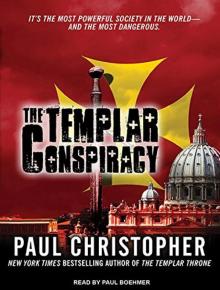 The Templar Conspiracy
The Templar Conspiracy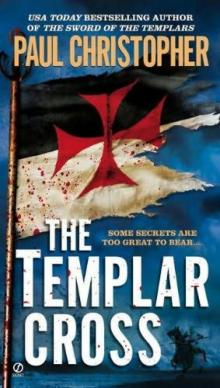 The Templar Cross t-2
The Templar Cross t-2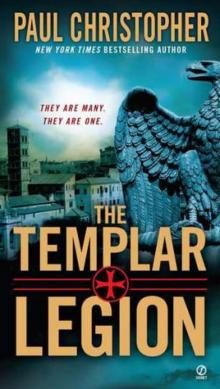 The Templar Legion t-5
The Templar Legion t-5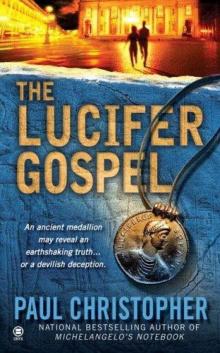 The Lucifer Gospel
The Lucifer Gospel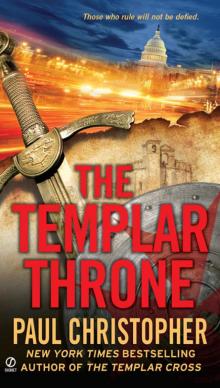 Templar Throne
Templar Throne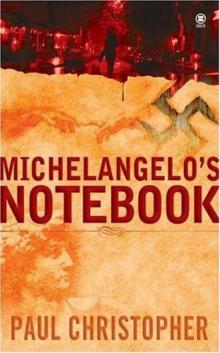 Michelangelo_s Notebook fr-1
Michelangelo_s Notebook fr-1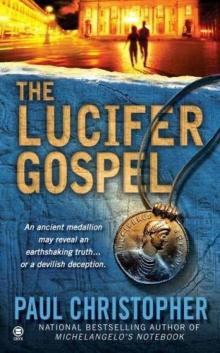 The Lucifer Gospel fr-2
The Lucifer Gospel fr-2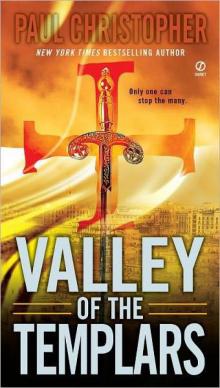 Valley of the Templars ts-7
Valley of the Templars ts-7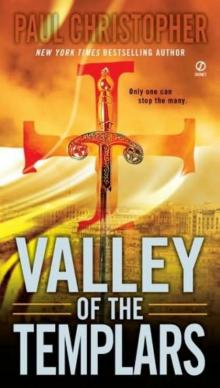 Valley of the Templars
Valley of the Templars Templar Cross
Templar Cross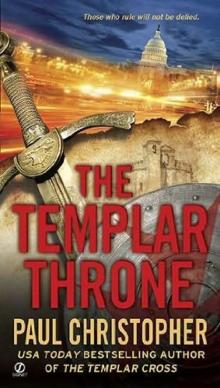 The Templar Throne
The Templar Throne The Templar Cross
The Templar Cross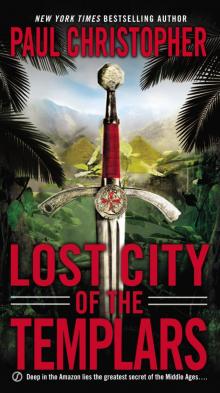 Lost City of the Templars
Lost City of the Templars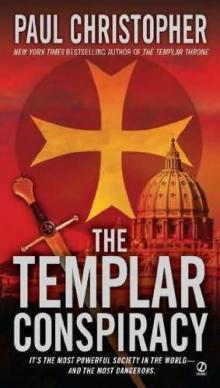 The Templar conspiracy t-4
The Templar conspiracy t-4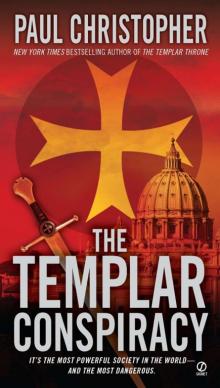 Templar Conspiracy
Templar Conspiracy